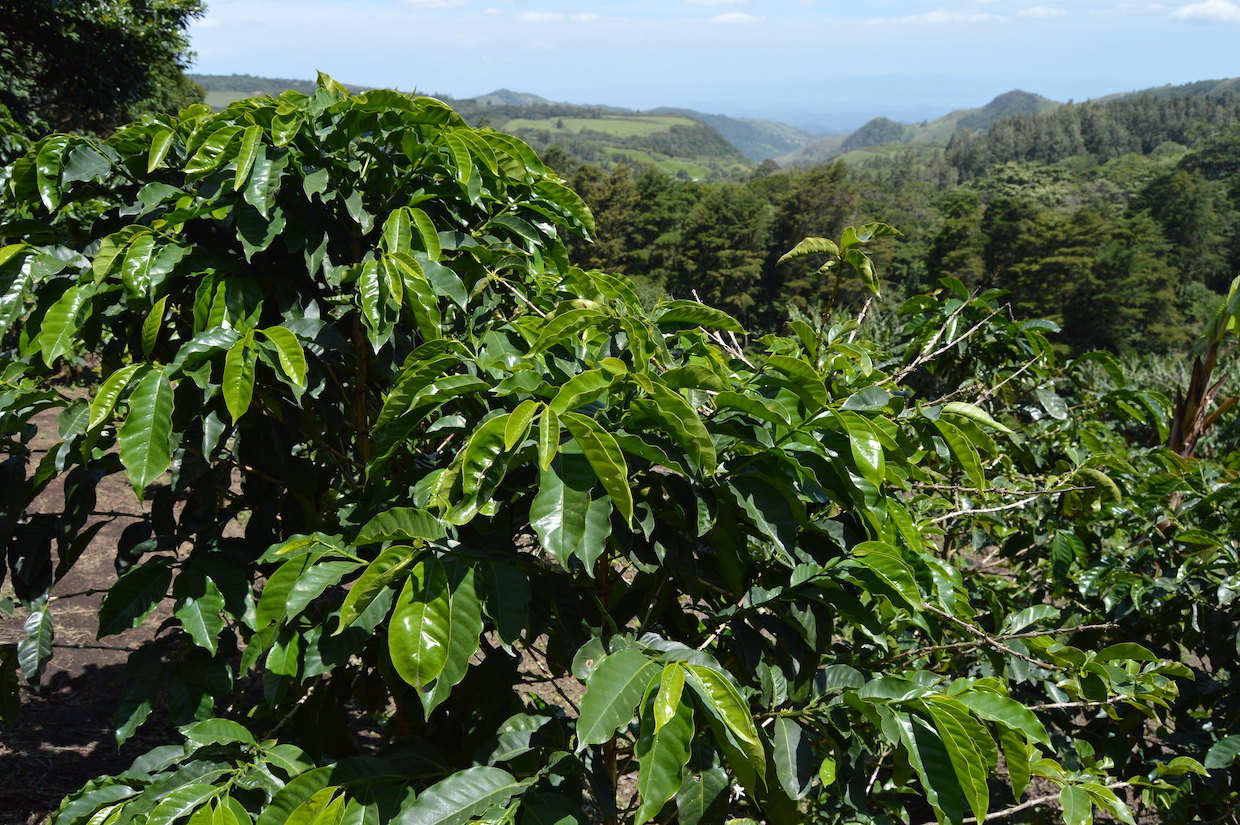
“Coffee plants at Trepiche (Costa Rica)” by kmf164 is licensed under CC BY-SA 2.0.
Coffee production in Costa Rica in market year 2024/25 is expected to hover around near-record-low levels as the country’s approximately 27,000 coffee growers continue to face labor and weather-related challenges.
Compounding those issues is the strength of the Costa Rican colón against the United States dollar, which is creating unfavorable exchange rates for exports and further disincentivizing production.
These and other issues are outlined in the new USDA Foreign Agriculture Service annual report on the Costa Rica coffee sector.
[Note: This is part of a series of stories that will explore USDA FAS annual coffee reports. The information agency typically delivers more than a dozen country-level reports on the coffee sector, each coming from different authors and field offices.]
Production Challenges
- The FAS office in San Jose, Costa Rica, now projects MY 2024/25 coffee production to reach 1.185 million 60-kilo bags, similar to market year 2023/24, despite ongoing systemic challenges.
- High indebtedness, a stronger Costa Rican Colón, decreased demand and lower international prices are contributing to a challenging financial situation for coffee growers, the report states.
- Many growers are expected to limit investments in their plantations, with reduced fertilization rates and delayed upgrades to higher-yielding, disease-resistant varieties.
Climate and Labor Issues
- The Costa Rican national coffee institute ICAFE initially projected MY 2023/24 coffee production at 1.44 million 60-kg bags, but actual production declined by 16% to 1.18 million bags, according to sources.
- Unusually early and heavy rains in March 2023 and above-average temperatures linked to El Niño led to poor fruit development, increased fungal diseases and wet harvest conditions, affecting coffee quality and increasing drying costs, the report states.
- Limited availability of coffee pickers — exacerbated by roadblocks and transportation issues due to protests in Panama, and northern migration from Nicaragua — significantly contributed to the reduced harvest, according to the report.
Domestic Consumption
- The FAS San Jose office projects Costa Rican domestic coffee consumption in market year 2024/25 to reach 420,000 bags, a 5,000-bag increase over the current year.
- Decline in consumption over recent years was due to economic contraction from the COVID-19 pandemic and high inflation, but late 2023 saw a rise in sales, particularly for lower-priced coffees.
- Domestic coffee sales surged by nearly 50% in 2022/23 compared to 2021/22 to reach 15% of total production.
Trade/Exports
- The office projects 2024/25 coffee exports at 975,000 bags, which is a minimal increase over 2023/24 and a 3% decrease from 2022/23, due to a smaller crop and slower global sales.
- The average export price in 2023/24 was $288.40 per 60-kilo bag, down from $323.80 in 2022/23, despite Costa Rica’s reputation for continued quality, environmentally friendly production, traceability and fair income distribution.
- According to sources in the report, the U.S. remains the largest market for Costa Rican coffee exports, accounting for 51% in 2022/23 exports, followed by the European Union (35%).
Policy and EUDR
- According to the FAS office, ICAFE is leading compliance efforts for the Costa Rican coffee sector regarding the EU deforestation-free legislation (EUDR), including sending the world’s first EUDR-compliant international shipment.
- A pilot program involved 69 growers and aimed to develop a practical method for evaluating and documenting EUDR compliance.
- The report notes that sources in Costa Rica are uncertain whether or when the EU will actually enforce the new laws, although “it does not appear that the majority of growers supplying beans to the EU in any given year could be compliant with the requirements.” (Editor’s note: This quote originally continued on to say that the compliance deadline is Sept. 30, 2024, although the actual compliance deadline for large companies under the new law is Dec. 30, 2024.)
Comments? Questions? News to share? Contact DCN’s editors here.






Comment